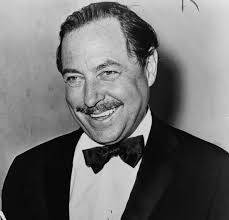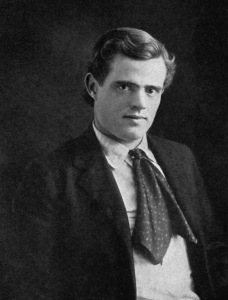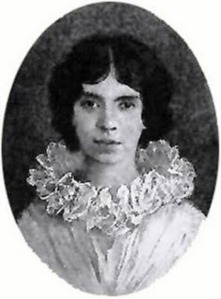ANSWERS TO OUR LIT QUESTION OF THE MONTH

(Why a Lady Gaga photo?)
***
We have answers! The answers come from across today’s literary spectrum– at all levels. Please google the individual names for bios, works, and websites. Lavish thanks to all who participated.
We’ve acted in arbitrary fashion in lining up the order of responses. We invite readers and writers alike to post comments about these answers. Which are your favorites? One purpose of literature is to stimulate thought and debate.
But, as Gertrude Stein said, “What is the question?”
QUESTION:
“Does the contemporary short story need to be radically revamped in order to reach a broader audience?”
*********
Emerson Dameron, writer/performer
ANSWER: Absolutely. I fear that writing for publication has become a hobby for the rich and isolated, and that no one is writing stories about the horrors that the rest of America is experiencing day to day. I mostly read nonfiction now because at least it has some relevance, and that’s a bummer.
***
Colum McCann, writer/teacher
ANSWER: No, writers just have to continue splitting open the atom — that’s all, simple as that. Split open the atom, time and time again. And then hope that somebody is there to hear the roar. This is what writers have been doing for hundreds of years and will try to do for hundreds more … if there’s still a world to write about, that is.
***
Meakin Armstrong, magazine editor
ANSWER: The market for short fiction is already broad; it’s just that the market is fragmented, thanks to technology. Incredible short fiction is being published right now, and probably more of it is being published than ever before. One unintended consequence of technology, however, is that this avalanche of short fiction has tended to fragment the market. Nearly every day, I hear of a new small press or a new journal—and that’s great. But nonetheless, it’s still one more new journal; one more new press—with presumably only a static number of readers out there. Arguably, the lack of money is freeing, though. At Guernica, I don’t give a rat’s ass about our market, because there’s no money in it, anyway. But writers still need money. Publishers still need money. So if you’ve got money, SEND MONEY. That means actually subscribing to those journals you pretend to read and supporting those presses you say you love. With money, short fiction will figure out its own shit. Just don’t expect to be your friend: all good fiction prefers to bite the hand that feeds it.
***
Samuel Stevens, writer/blogger
ANSWER: The short story needs to be radically revamped, but not in an overly avant-garde direction. Workshop style fiction dominates school textbooks, informing people’s idea of the format. It may be cliched, but the first objective of any writer is to tell a good story; in this regard, workshop fiction fails because it is dull. The other factor as well is the shift in our culture away from the conceptual to the visual. People who might have picked up a pulp magazine fifty years ago turn on Netflix. While I don’t think the short story (or long form novel) will go away entirely. If the story is to be viable again, writers need to focus on substance and less worrying about MFA program conventions.
***
Scott Turow, best-selling author
ANSWER: There should be a broader canon. “The moment of impression” stories pioneered in Dubliners are still effective for me, but stories in the mode of O’Henry should also be valued.
***
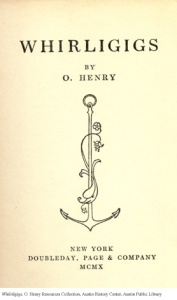
***
Benjamin Hale, author
ANSWER: I don’t think so. The short story as a form has been getting radically revamped again and again for at least a hundred years. Any “radical revamping” of any art form always seems like barking up the wrong tree to me, anyway. Ezra Pound said, “Make it new!” He was wrong about that, as he was about many other things. I say, don’t worry about making it “new.” Worry about making it good — that’s hard enough to do.
***
Gabriel Roth, editor/writer
ANSWER: I don’t really understand the premise. Who cares if a particular form reaches “a broader audience”? Who has that kind of investment in an abstraction like “the contemporary short story”? And if you did have that kind of investment, why would you want to “radically revamp” the thing you’re so invested in?
***
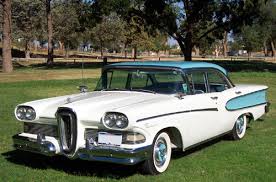
***
Justin Taylor, author
ANSWER: This question is built on a set of assumptions I don’t accept, namely that a standardized form known as “the contemporary short story” exists; that its “radical revamping” is a project for some executive body to carry out (presumably after sparkling for consensus on the new squad goals); and that “a broader audience” is something of inherent value. The first thing is demonstrably false; the second thing is a paranoid fantasy. The third thing is at least debatable, though before we could I’d have to know what constituted broadness, and what “revamping” meant to my work personally. Anyway it strikes me that most contemporary-canonical writers insist on some kind of radical narrowness, choosing depth and intensity over breadth and accessibility: Donald Barthelme, Flannery O’Connor, Joy Williams, Denis Johnson, Lorrie Moore, Lydia Davis… Love or hate ‘em, they’ve won their readerships through originality, audacity, and vessel-breaking—not party programs.
***
Carmela Ciuraru, critic/editor
ANSWER: The contemporary short story can’t be defined in the singular. Short fiction is Jhumpa Lahiri, but it’s also Diane Williams. It’s Junot Diaz, but it’s also Robert Stone. It’s Lorrie Moore and Laura van den Berg, Alice Munro and Aimee Bender, Sherman Alexie and George Saunders. I could go on. There is no need to radically revamp what is already a wonderfully diverse and vibrant genre, brimming with talented writers. (And how would one go about revamping it, anyway?) If there’s a problem, it’s that people should read more radically–and read more, period. Anything you could possibly want from a short story is out there, waiting to be discovered.
***
T.C. Boyle, renowned story writer
ANSWER: Absolutely. All short stories, no matter where they are set or who the protagonists are, must be filmed with Lady Gaga playing all the principal roles, and distributed intercranially worldwide. Otherwise, if the short story persists in its present form–i.e., in being a glittering object on a page–it is doomed.
***
Daniel Menaker, writer/executive editor
ANSWER: Maybe it’s that the broader audience needs to be radically revamped in order to read the contemporary short story.
***
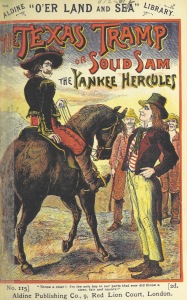
***
Fiona Maazel, writer/professor
ANSWER: No. At least not in some artificial way or in response to some angry call to action. Fiction is always reinventing itself, and great writers are always finding new ways to disrupt the status quo and channel what is most pressing and anguished about being alive in the world as it is today.
***
Christopher Merkner, writer/teacher
ANSWER: With all due respect, I think this question needs to be revamped. I’m glad we’re talking about the short story, but I’m not sure I can negotiate the assumptions upon which this particular question rests. But I am grateful you’re asking questions about the short story — that part is good. And thank you for inviting me to think about this.
***
Ann Sterzinger, writer/reviewer
ANSWER: Of course it does. I don’t even read short stories anymore. You’re all assholes.
***
Jim Gibson, writer/zinester
ANSWER: I think the short story has always been of more interest to other writers than to the general public. It tends to be where writers hone their craft before writing novels. Think of short films. Unless you’re really into film you may never even have seen a short. These are more artistic pursuits that are aware that they will never be commercial, however, the people that read them are actually the people that really care and matter.
That being said, if I was to go about crafting something that as many people as possible would actually read, I would probably look at making it a more immersive experience: if online I’d add music that enhanced it and set the whole page out to complement the story, maybe even produce short trailers for them. I don’t think this would enhance all writing, like my own or the things we publish at Hand Job, but for more straight up genre fiction and standard narratives it would definitely entice people.
***
Madison Smartt Bell, renowned story writer
ANSWER: Absolutely. Bring back the Saturday Evening Post but with illustrations by Sue Coe instead of Rockwell.
***

(Sue Coe’s artwork is used pending permission.)
***
Anne Leigh Parrish, writer
ANSWER: The only thing the contemporary short story needs is a high level of accessible art. Stories should cover every possible aspect of human endeavor and experience in a way that invites readers in. Short stories, like all fiction, have but one goal: to lift us off from reality and startle us into recognition.
***
Wred Fright, writer/zinester
ANSWER: Yes. The masses may never be interested in the contemporary short story that appears in literary journals, but they are always interested in good stories, so they can be reached. Many writers today only write for the MFA/university crowd though, so a broader audience is not reached. Writers might be better off skipping the workshop and experimenting with new media instead. Though I am fond of the idea of a poet on every corner (also, I would love a garage band in every garage, except when I am trying to sleep–make art not war), we don’t need every writer to go into debt with student loans to achieve that, and eventually we will realize that and the current multilevel marketing scheme of creative writing programs will collapse. Once writers give up hope of landing a teaching gig and stop playing it safe, then they might become even more interesting.
***
Kelly Cherry, renowned story writer
ANSWER: I think the short story is already being revamped via the revival of and new interest in flash fiction and short shorts. But I’d also like to see stories that are longer and deeper than even the usual. It is hard to place such stories, of course, and perhaps readers are reluctant to commit to them, but I favor stories that explore character in a whole and undaunted way. Would they reach a broader audience? I fear not, but they would reach me.
***
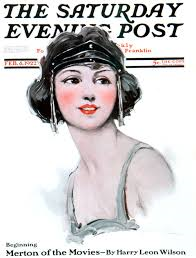
***
John Gorman, writer/blogger
ANSWER: No. I don’t believe so. In fact, modern short stories have been evolving for quite some time. The proliferation of MFA programs and the flood of e-zines have made this possible, but so has the burgeoning popularity of Flash Fiction which has a dedicated and growing readership. Flash Fiction itself has undergone a paradigm shift, paring down to ever snappier pieces and opening up sub-categories. These pithier, and sometimes punchier works, fit nicely into our short attention spans. They also offer a great boon for both print and online journals who want to introduce more writers per issue. Though the actual category is rather nebulous, allowing for stories between 500 – 1000 words, there is a surge of even shorter pieces: micro or sudden fiction (less than 300 words), drabbles (100 words), dribbles (50 words) and 6-word stories. As counterpoint to these sinewy works, I’ve also noticed a rise in novellas.
***
Deb Patrick, playwright
ANSWER: I don’t think you can impose a form on any writer. For me, story always suggests form. A writer has to be courageous enough to go where the story takes him or her. It’s the reception that’s the problem — editors and reviewers with narrow vision, wedded to forms they know, rejecting subjects too challenging for them. Ultimately, our audiences will decide — if they get to read what we write.
***
Patrick Rapa, journalist
ANSWER: While I’m all for radical departures, I’m also wary of any artistic endeavor that puts audience-seeking at the top of its to-do list. Writers should answer a higher calling, right? But hell, I came of age in the alt-rock ’90s when we all leered at each other like government spies, ready to pounce on the first symptoms of vanity and selloutism. That kind of thinking turned some upright citizens into hypocrites and ghosts of their own potential. No way to live. For writers in search of untouched wildernesses, I say: Seek your readers, learn to distinguish thoughtful criticism from secret hate, and trust your vision above all.
***
Andrea Gregovich, writer/translator
ANSWER: We must disregard the contemporary conventions and rules that have had us so constricted, and write stories exactly how we feel like writing. We need to get the writing teachers and critics out of our heads. We must set new rules, revive rules of yore, or reject rules completely, whatever is our thing. And when we free ourselves from the conventional shackles that have made stories so blah for so long, some of our new stories will suck, and some will be brilliant. We need not care which. Those of us writing for the new age of literature need to see our writing as experiment and evolution, and not worry about things being publishable—there’s room on the internet for all of it anyway. We just need to keep plugging away at it. With this approach we can find the ways to make the short story readable and relevant again.
***
THANKS EVERYONE!!
Our main site is here.
One of our own irrepressible stories.
***

